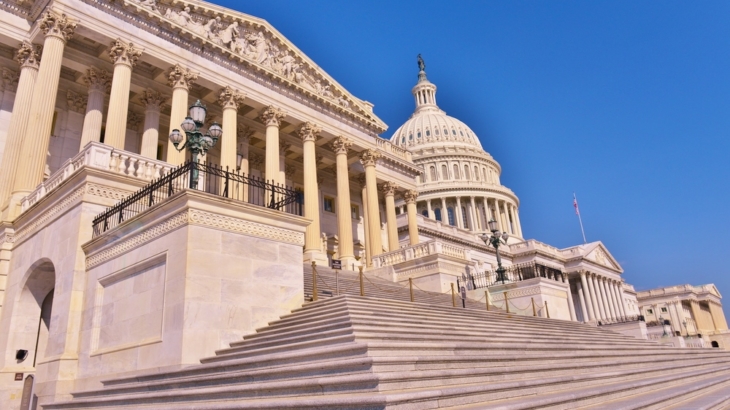“He has forbidden his Governors to pass Laws of immediate and pressing importance unless suspended in their operation till his Assent should be obtained; and when so suspended, he has utterly neglected to attend to them”
Everyone knows what paper money is. Even in the days of credit cards and Apple Pay, there is something reliable about a greenback, often with a founder’s face on it: George Washington, Alexander Hamilton, or if you’re really lucky, Benjamin Franklin.
But paper money wasn’t always so reliable. The federal government only started issuing the paper currency about a hundred years ago. Before that, paper money carried with it a great deal of risk. Instead of the government, local banks printed paper money. But if that bank went out of business, your money wasn’t worth the paper it was printed on!
Paper money was a big deal when men like Washington, Jefferson, and Franklin were founding the United States. With very little gold or silver in America, people needed a reliable medium of exchange to purchase goods and services.
Several colonial governments tried to address this issue. In 1690, Massachusetts issued the first paper currency in America, something it called “Tax Anticipation Notes.” These notes could be used as money. A merchant would accept them in exchange for kettles or Bibles because that merchant knew that the Colony of Massachusetts was guaranteeing the value of the notes.
When Great Britain went to war with France in the 1750s, many American colonies followed Massachusetts’s lead. They printed paper money and used this currency to pay for soldiers, weapons, and forts. As had been the case in Massachusetts, colonial merchants were happy to accept these notes because they knew that the government guaranteed their value.
But, British merchants hated colonial currency. Many British traders had extensive networks that stretched from India to Africa and the Caribbean. In such global trade, they did not trust paper money from Massachusetts or elsewhere in America. As a result, they pressured the British government to prohibit the colonies from printing their own money. In 1764, Parliament passed the Currency Act that did just that.
The Americans did not like the Currency Act because it took large amounts of money out of circulation. This was a particular problem when Parliament demanded that the colonists pay taxes to Britain. How could Americans pay their taxes with no money?
In 1765, Parliament passed a law requiring the colonists to pay for British soldiers stationed in North America. People living in New York especially hated this new law, so they came up with a compromise. What if they agreed to pay the soldiers with paper money?
In December 1769, the New York legislature voted to issue £120,000 in paper money. Of this, £2000 would go directly to the British army. The legislature then sent this plan to the New York Governor Cadwallader Colden as he had to sign the bill before it became law. Colden was unsure of what to do. The bill clearly violated the Currency Act, but if he vetoed the bill, then there would be no money for the troops. Ultimately, Governor Colden signed the bill into law, but first he attached a suspending clause.
Suspending clauses were typical in colonial America. Essentially, they stated that the law would not take effect until the king’s advisers had a chance to review the legislation and either approve it or reject it. The British government viewed this as a necessary means of keeping colonies from violating British laws like the Currency Act. The Americans, however, had a much darker view of suspending clauses. They saw them as way for the king to take away their rights by canceling laws passed by the legislatures.
That is what this passage in the Declaration of Independence refers to. Although the document does not mention paper money, the Currency Act, or New York, many people made this connection in 1776. The charge condemns King George III for not allowing the colonial governors from simply passing or vetoing laws. Also not stated is the implication that Americans would be better off choosing their own governors who could make their own judgment about bills passed by the legislature without looking to England for advice.
In the case of the New York’s paper money law, the king’s advisers allowed the colony to print its own currency. However, this money could only be used by the government to pay for things like supplying soldiers. This left a lot of Americans unhappy and moved them toward independence six years later.
Nearly two hundred and fifty years later, we have forgotten this part of the Declaration of Independence, but the issue of money continues to be important. Appropriately, it is the nation that the Declaration of Independence created that guarantees that our “Benjamins” are worth $100.
 John G. McCurdy is Professor of History at Eastern Michigan University. He is the author of Quarters: The Accommodation of the British Army and the Coming of the American Revolution. He regularly teaches courses on early American history.
John G. McCurdy is Professor of History at Eastern Michigan University. He is the author of Quarters: The Accommodation of the British Army and the Coming of the American Revolution. He regularly teaches courses on early American history.

Podcast by Maureen Quinn
Click Here To Sign up for the Daily Essay From Our 2021 90-Day Study: Our Lives, Our Fortunes & Our Sacred Honor
Click Here To View the Schedule of Topics From Our 2021 90-Day Study: Our Lives, Our Fortunes & Our Sacred Honor

